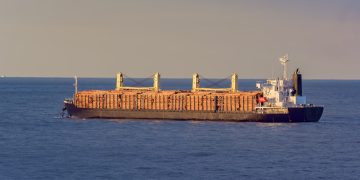During the Davos Agenda Forum, was lauched a new climate-action coalition named as “The Mission Possible Partnership”, which goals to accelerate the decarbonization of heavy industry and transport.
Run by the World Economic Forum, Energy Transitions Commission, Rocky Mountain Institute, the We Mean Business coalition, the “Mission Possible Partnership” aims to accelerate several pathways for decarbonizing heavy industry and transport by unifying the critical actors needed to influence and enable industry transformation at speed and scale.
“Public private cooperation across the transport and heavy industry sectors is crucial for the next phrase of action. The launch of the Mission Possible Partnership at the Davos Agenda will accelerate these efforts in the run-up to COP26 in November.”
…said Christoph Wolff, Head of Mobility, World Economic Forum.
As explained, the coalition came following the success of the Mission Possible Platform, which launched at the United Nations Secretary General’s Climate Action Summit back in 2019, and has grown from 30 companies in 2019 to 400 – who all are committed to working on concrete actions towards net-zero.
In addition, The Mission Possible will enhance more industries mobilize resources, align across a greater number of organizations, and accelerate the Race to Zero, while help carbon-intensive sectors reach their targets to a clear path of net zero emissions.
According to WEF, the partnership is centred on the idea that, while the Paris Agreement lays the groundwork for global cooperation, its focus on national targets will not generate the plans and solutions necessary to achieve efficient and effective transition strategies for global industries on its own.
What is more, during late 2021, partners aim to showcase net-zero agreement breakthroughs in shipping, aviation, and steel.
At the same time, within three years, collaborators plans to help companies complete climate action agreements in these sectors as well as trucking, chemicals, cement, and aluminium.
For the records, the International Energy Agency will provide guidance and input on various aspects of MPP’s work, including engagement with governments and energy modelling. Initial funders include the Bezos Earth Fund and Breakthrough Energy.
Concluding, the partnership’s efforts will be strengthened by the expertise of its supporting partners, which rank among the world´s most influential organizations in industrial decarbonization, finance and policy development.
Among others these include: the Center for Climate-Aligned Finance, Ceres, the Climate Champions of the United Nations Framework Convention on Climate Change, the Global Maritime Forum, SYSTEMIQ, the United Nations Environment Programme Finance Initiative,and the World Business Council for Sustainable Development.

































































